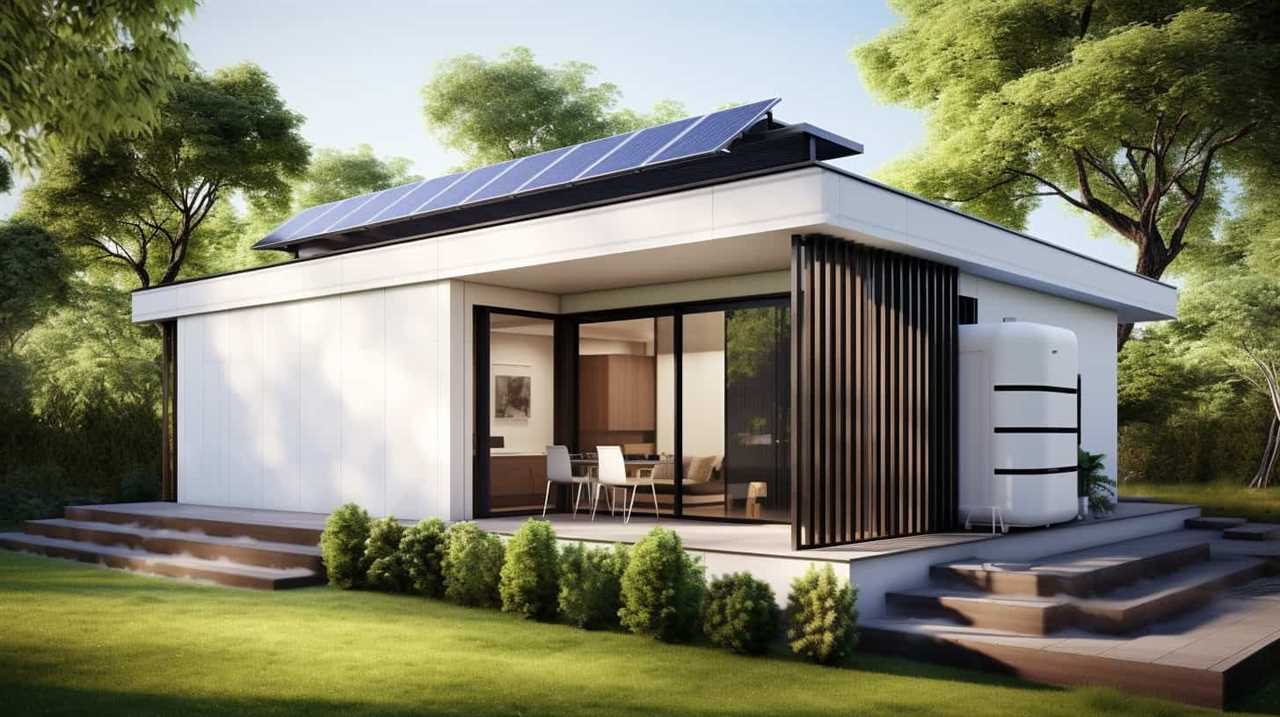Do you often find yourself frustrated with expensive energy bills and inconsistent heating and cooling systems? Look no further – we have the ideal solution for you!
In this article, we’ll guide you through the world of geothermal heat pumps and help you find the ideal one for your home. Geothermal heat pumps are sustainable, cost-effective alternatives to traditional HVAC systems. They harness the earth’s natural heat, providing efficient heating and cooling.
With so many options available, we’ve done the research for you. Get ready to discover the perfect geothermal heat pump for your home!
Key Takeaways
- Closed-loop geothermal heat pump systems are more common and have three subtypes: horizontal, vertical, and pond/lake.
- Open-loop geothermal heat pump systems rely on access to above-ground reservoirs or below-ground aquifers for continuous operation.
- Air source heat pumps are suitable for moderate climates and can reduce energy consumption by up to 50%.
- Ground source heat pumps utilize the earth’s constant temperature for heating and cooling, saving up to 60% on energy bills.
Closed-Loop Geothermal Heat Pump Systems
How do closed-loop geothermal heat pump systems work?
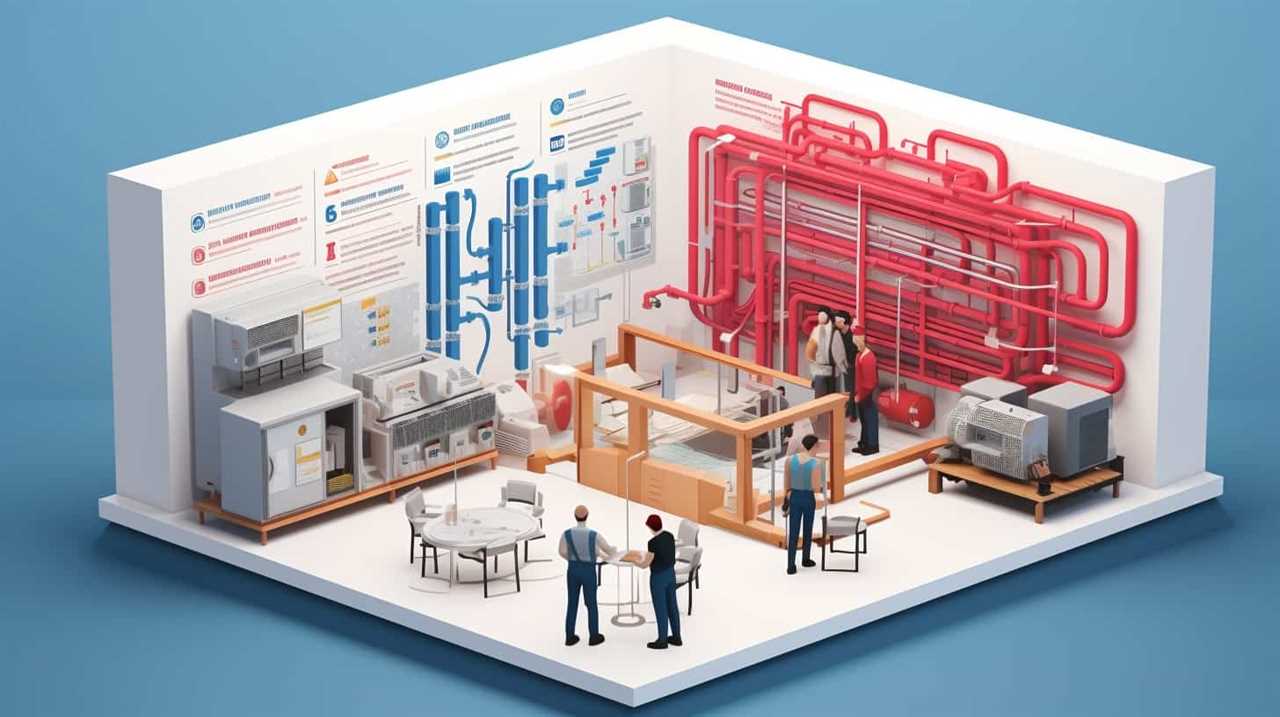
Closed-loop geothermal heat pump systems are a highly efficient and eco-friendly way to heat and cool your home. These systems utilize buried pipes and heat exchangers to transfer heat to or from the ground. One of the advantages of closed-loop systems is their versatility.
There are three subtypes of closed-loop systems: horizontal, vertical, and pond/lake. The horizontal closed-loop system involves burying pipes in long trenches at least four feet deep. On the other hand, the vertical closed-loop system requires drilling holes about 20 feet apart and up to 400 feet deep to insert the pipes. The choice between horizontal and vertical systems depends on the available space and geological conditions of the site.
Open-Loop Geothermal Heat Pump Systems
Exploring open-loop geothermal heat pump systems offers an alternative option for homeowners seeking efficient and eco-friendly heating and cooling solutions. Open-loop systems circulate water from underground or surface water sources, making them ideal for those with access to above-ground reservoirs or below-ground aquifers. These systems rely on proper access to water for continuous operation and utilize water as a heat source or heat sink.
One advantage of open-loop systems is their higher efficiency compared to closed-loop systems. This is because open-loop systems directly use the constant temperature of the water source, eliminating the need for a heat exchanger. However, it’s important to consider water quality and availability when opting for an open-loop system. Additionally, open-loop systems may require more maintenance due to potential issues with water flow and filtration.

Ultimately, homeowners should weigh the advantages and disadvantages of open-loop and closed-loop systems to determine which option best suits their needs.
Air Source Heat Pumps
While exploring different options for geothermal heat pumps, one option to consider is the use of air source heat pumps. These pumps offer several advantages in residential applications:
Energy Efficiency: Air source heat pumps can reduce energy consumption by up to 50% compared to traditional heating and cooling systems. They achieve this by using outside air as a heat source, which is freely available.
Versatility: Air source heat pumps can provide both heating and cooling, making them a versatile solution for year-round comfort in moderate climates.
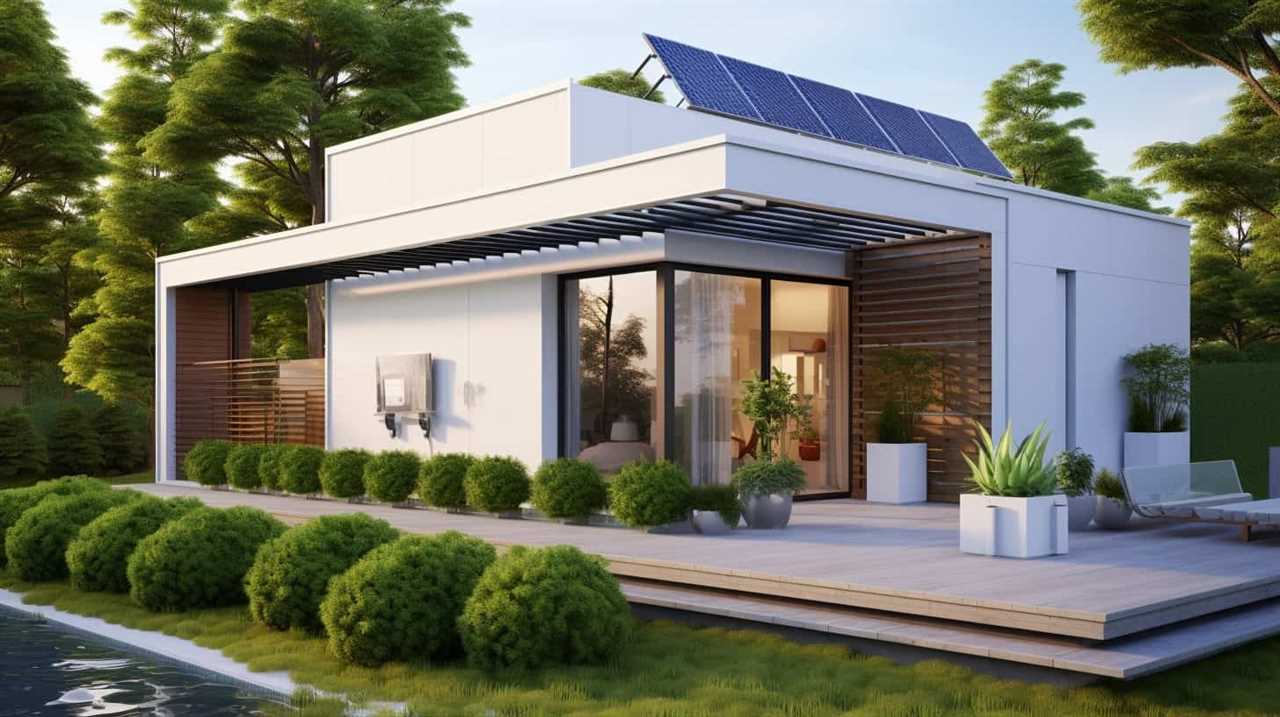
Cost Savings: By reducing energy consumption, air source heat pumps can lead to significant cost savings on utility bills.
When compared to other forms of heating and cooling, air source heat pumps offer a more efficient and cost-effective solution. They provide freedom from high energy bills while maintaining a comfortable indoor environment.
Ground Source Heat Pumps
Now let’s delve into the benefits of ground source heat pumps, which offer even greater efficiency and cost savings for homeowners.
Ground source heat pumps, also known as geothermal heat pumps, utilize the earth’s constant temperature for heating and cooling purposes. These systems are highly efficient, saving up to 60% on energy bills compared to traditional heating and cooling systems.
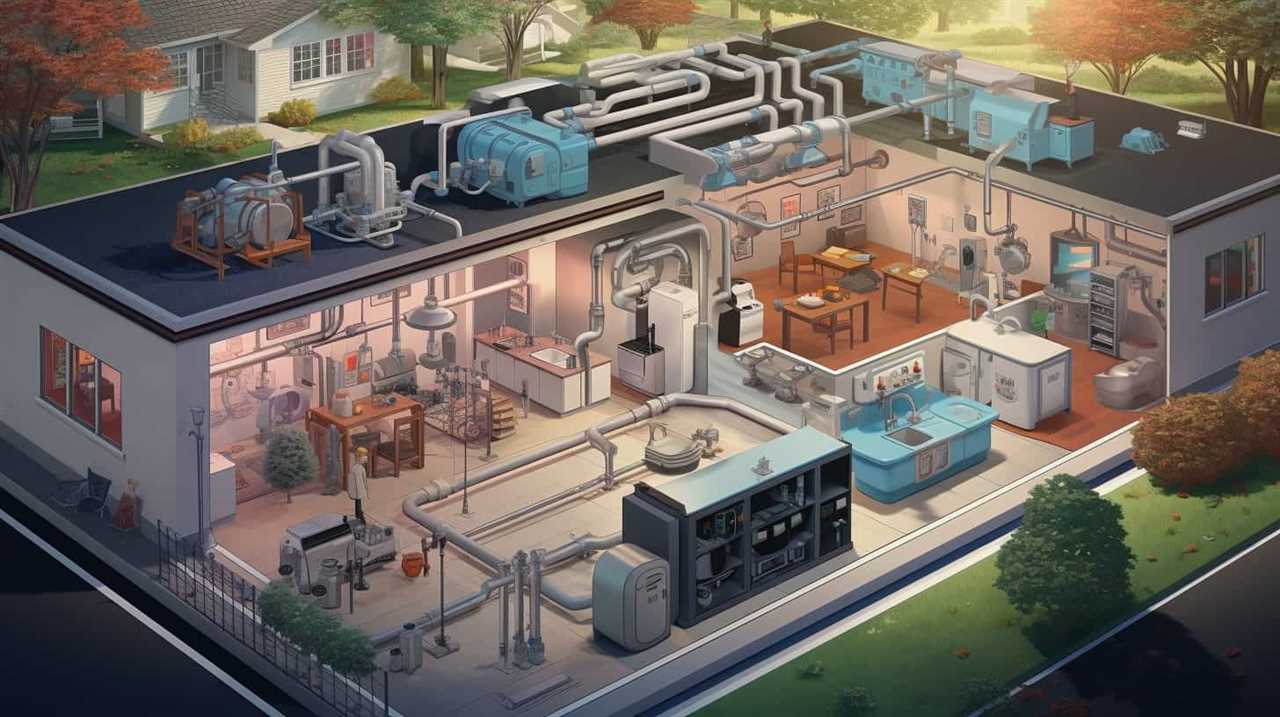
The long lifespan of up to 25 years makes them a reliable and cost-effective choice for homeowners. While the initial installation cost may be higher than other systems, the long-term savings in energy costs make ground source heat pumps a worthwhile investment.
Additionally, these systems provide consistent and comfortable indoor temperatures throughout the year, ensuring a pleasant living environment.
Water Source Heat Pumps
Water source heat pumps offer an efficient and environmentally friendly solution for heating and cooling your home. Here are three types of water sources suitable for water source heat pumps:
Lakes and Ponds: Water source heat pumps can extract heat from nearby lakes or ponds. This method is especially beneficial for areas with access to large bodies of water, as it provides a consistent and reliable heat source.

Rivers and Streams: Similar to lakes and ponds, rivers and streams can also serve as suitable water sources for heat pumps. The flowing water helps maintain a stable temperature, making it an ideal choice for heating and cooling applications.
Groundwater: Heat pumps can extract heat from underground water sources, such as wells or aquifers. This method is particularly advantageous for areas with limited access to surface water, as it relies on underground reservoirs for continuous operation.
Water source heat pumps have several advantages over air source heat pumps. They offer higher efficiency and can provide both heating and cooling. Additionally, water sources tend to have more stable and consistent temperatures compared to air, resulting in improved performance and energy savings.
Factors to Consider in Choosing a Geothermal Heat Pump
After considering the advantages of water source heat pumps over air source heat pumps, we frequently evaluate various factors when choosing a geothermal heat pump for our home.
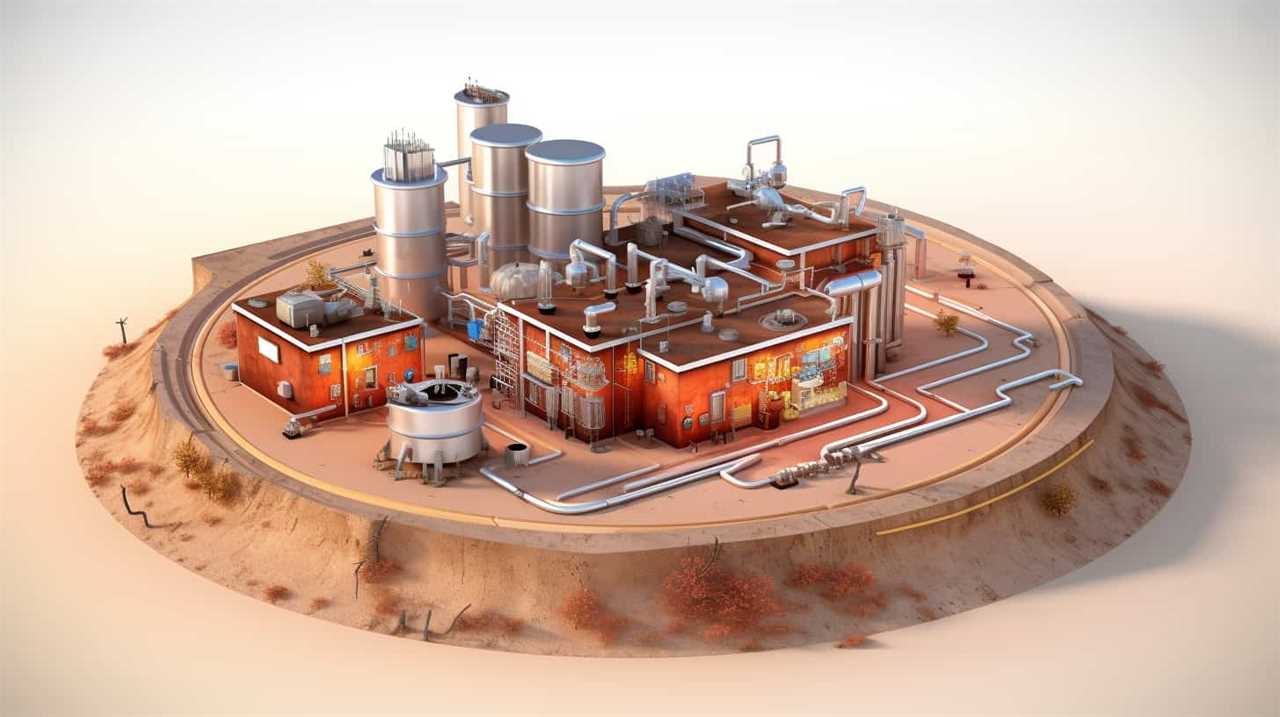
One important factor is the geothermal heat pump efficiency. We analyze the coefficient of performance (COP) to determine how efficiently the heat pump can transfer heat from the ground to our home. A higher COP indicates better efficiency and lower energy consumption.
Another factor we consider is the geothermal heat pump cost analysis. We assess the initial installation cost, as well as the long-term savings on energy bills. Additionally, we evaluate the warranty offered by the manufacturer to ensure we’re protected against any potential issues.
Installation and Maintenance of Geothermal Heat Pumps
When it comes to installing and maintaining geothermal heat pumps, we prioritize efficiency, cost analysis, and warranty considerations from our previous discussion. Here are the key points to keep in mind:
Geothermal Heat Pump Efficiency:

- Geothermal heat pumps are known for their high efficiency, providing significant energy savings compared to traditional heating and cooling systems.
- They utilize the earth’s constant temperature to heat and cool your home, reducing energy consumption and greenhouse gas emissions.
- With proper installation and regular maintenance, geothermal heat pumps can operate at peak efficiency for many years.
Geothermal Heat Pump Installation Costs:
- The installation costs of geothermal heat pumps can be higher compared to conventional systems due to the need for underground installation.
- However, the long-term energy savings and lower maintenance costs can offset the initial investment.
- It’s crucial to obtain multiple quotes from reputable installers and consider the lifetime cost analysis before making a decision.
Benefits of Geothermal Heat Pumps for Homeowners
As homeowners, we can reap numerous benefits from geothermal heat pumps. One of the most significant advantages is the cost savings they offer. Geothermal heat pumps are highly efficient and can reduce energy consumption by up to 60%, resulting in lower utility bills. Additionally, the long lifespan of these systems, up to 25 years, means fewer replacements and maintenance costs over time.
Another benefit is the positive environmental impact of geothermal heat pumps. By utilizing the earth’s constant temperature for heating and cooling, these systems reduce greenhouse gas emissions and help combat climate change. They also don’t rely on fossil fuels, reducing our dependence on finite resources.
Frequently Asked Questions
What Are the Advantages of Using a Closed-Loop Geothermal Heat Pump System Over an Open-Loop System?
Using a closed-loop geothermal heat pump system has several advantages over an open-loop system, including lower installation costs and reduced maintenance requirements. The closed-loop system is also more environmentally friendly and doesn’t rely on continuous access to water sources.
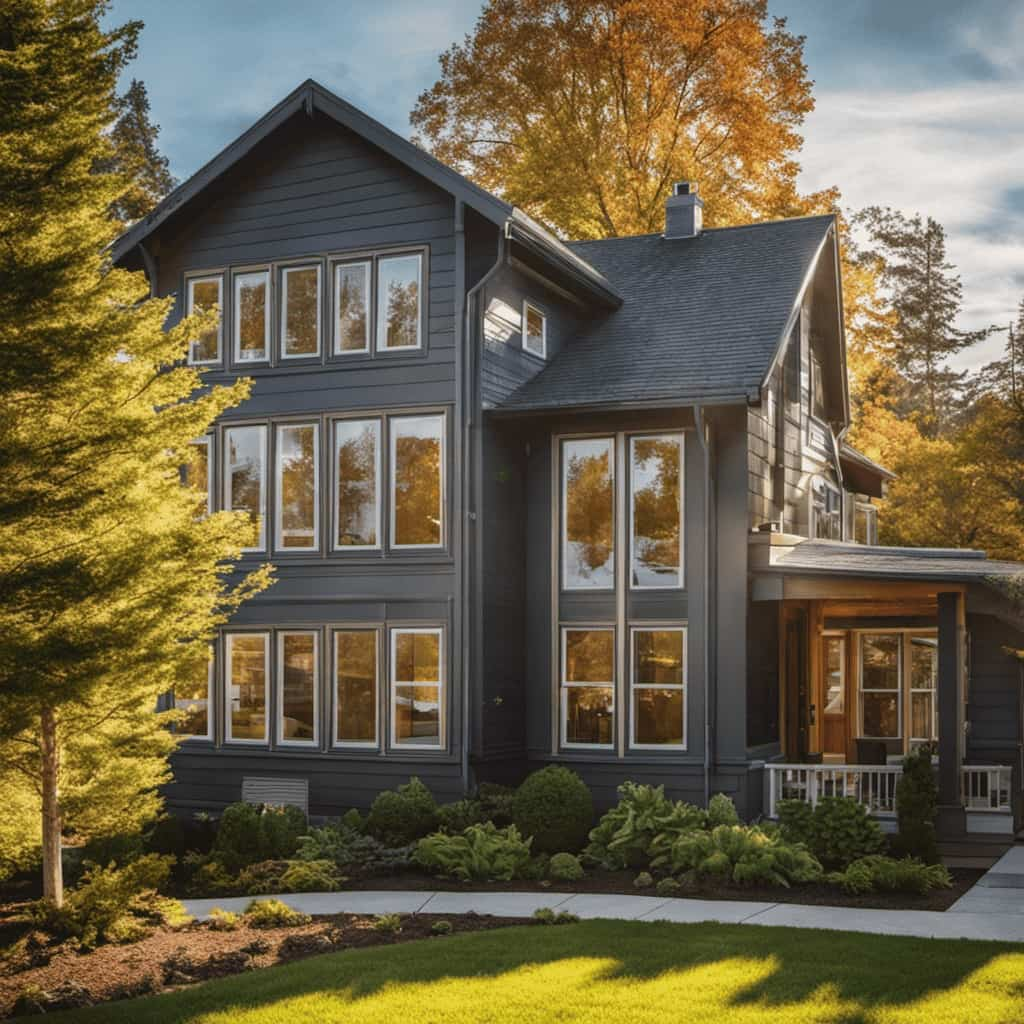
How Deep Should the Trenches Be for a Horizontal Closed-Loop Geothermal Heat Pump System?
Ideal trench depth for a horizontal closed-loop geothermal heat pump system is at least four feet deep. Trenching equipment is used to dig the trenches, ensuring proper installation and optimal heat transfer.
What Are the Considerations for Choosing Between a Horizontal, Vertical, or Pond/Lake Closed-Loop Geothermal Heat Pump System?
When considering a geothermal heat pump system, it is important to weigh the pros and cons of horizontal, vertical, and pond/lake closed-loop systems. Factors such as land availability and water access must be considered.
Can an Open-Loop Geothermal Heat Pump System Be Used in Areas Without Access to Above-Ground Reservoirs or Below-Ground Aquifers?
An open-loop geothermal heat pump system cannot be used in areas without access to above-ground reservoirs or below-ground aquifers. The system relies on these alternative geothermal heat sources and has limitations in terms of water availability.
How Does the Energy Consumption of an Air Source Heat Pump Compare to Other Types of Heat Pumps?
Air source heat pumps have a lower energy consumption compared to other types of heat pumps. Factors like climate and insulation affect the energy efficiency of geothermal heat pumps.
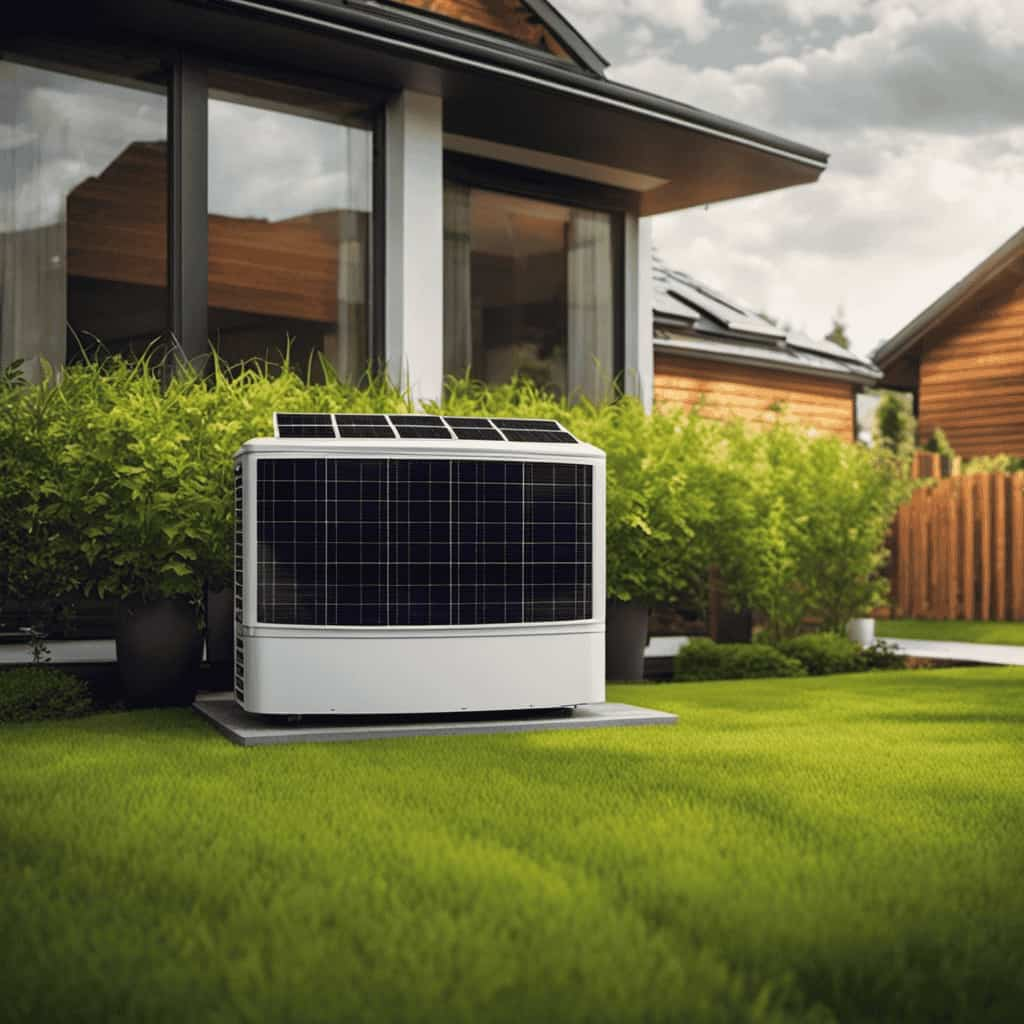
Are Geothermal Heat Pumps More Eco-Friendly Than Traditional Heat Pumps?
Geothermal heat pumps for eco-friendly homes offer a sustainable solution to reduce energy consumption. Unlike traditional heat pumps, geothermal systems use the earth’s natural heat, emitting fewer greenhouse gases in the process. By harnessing this renewable energy, geothermal heat pumps contribute significantly to environmental preservation and provide long-term benefits for eco-conscious homeowners.
Conclusion
In conclusion, geothermal heat pumps offer a sustainable and cost-effective solution for heating and cooling your home.
By harnessing the natural heat stored in the earth, these systems provide efficient and reliable temperature control throughout the year.
For example, imagine a homeowner in a cold climate who installed a geothermal heat pump. They were able to significantly reduce their energy bills while enjoying a consistently comfortable indoor environment, even during harsh winter months.
With the right geothermal heat pump, you too can experience the benefits of a more energy-efficient and sustainable home.
